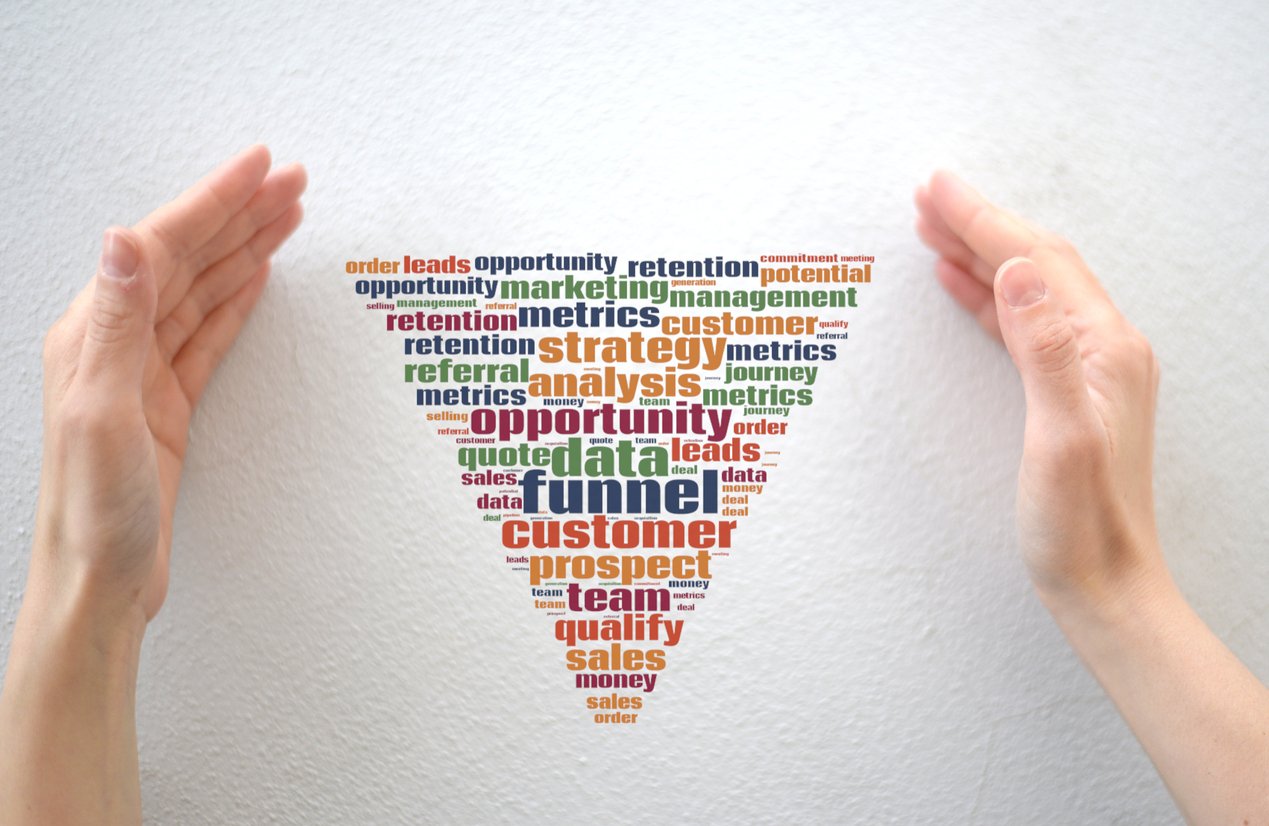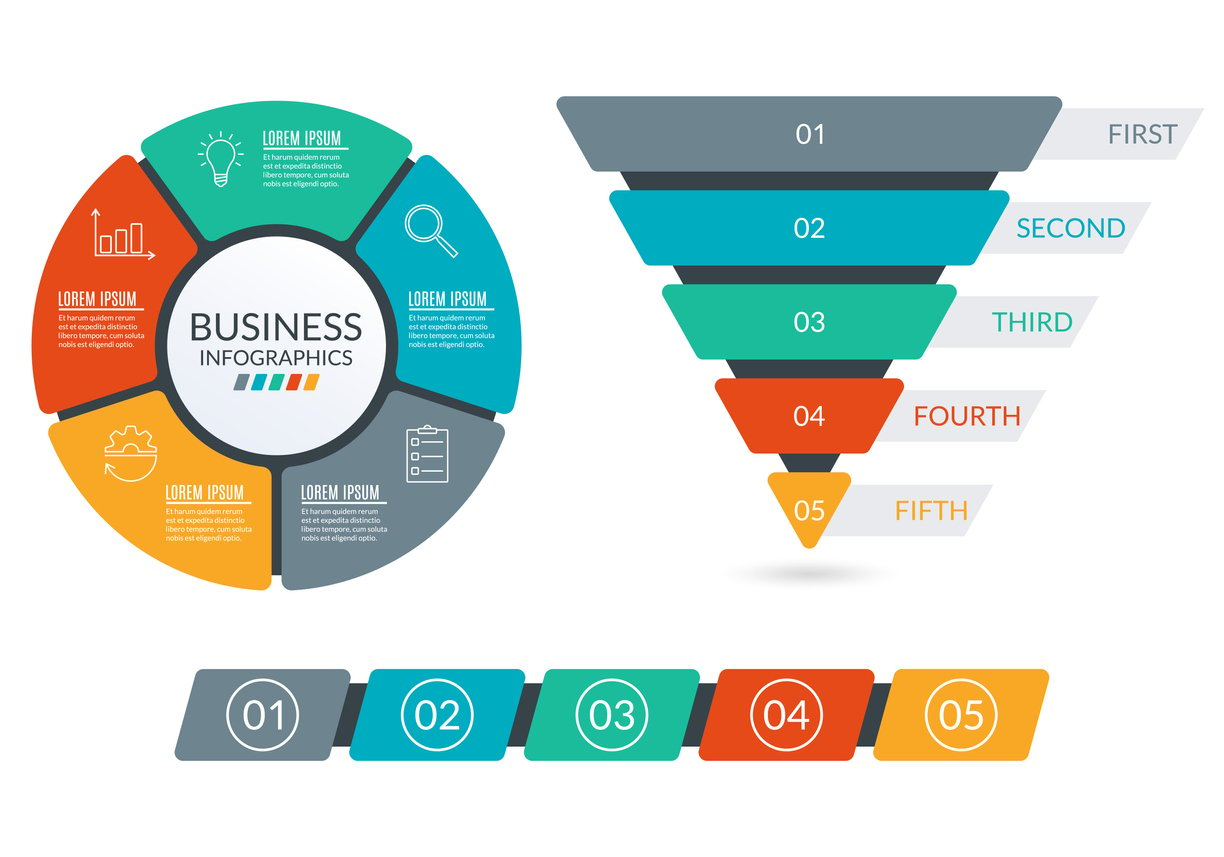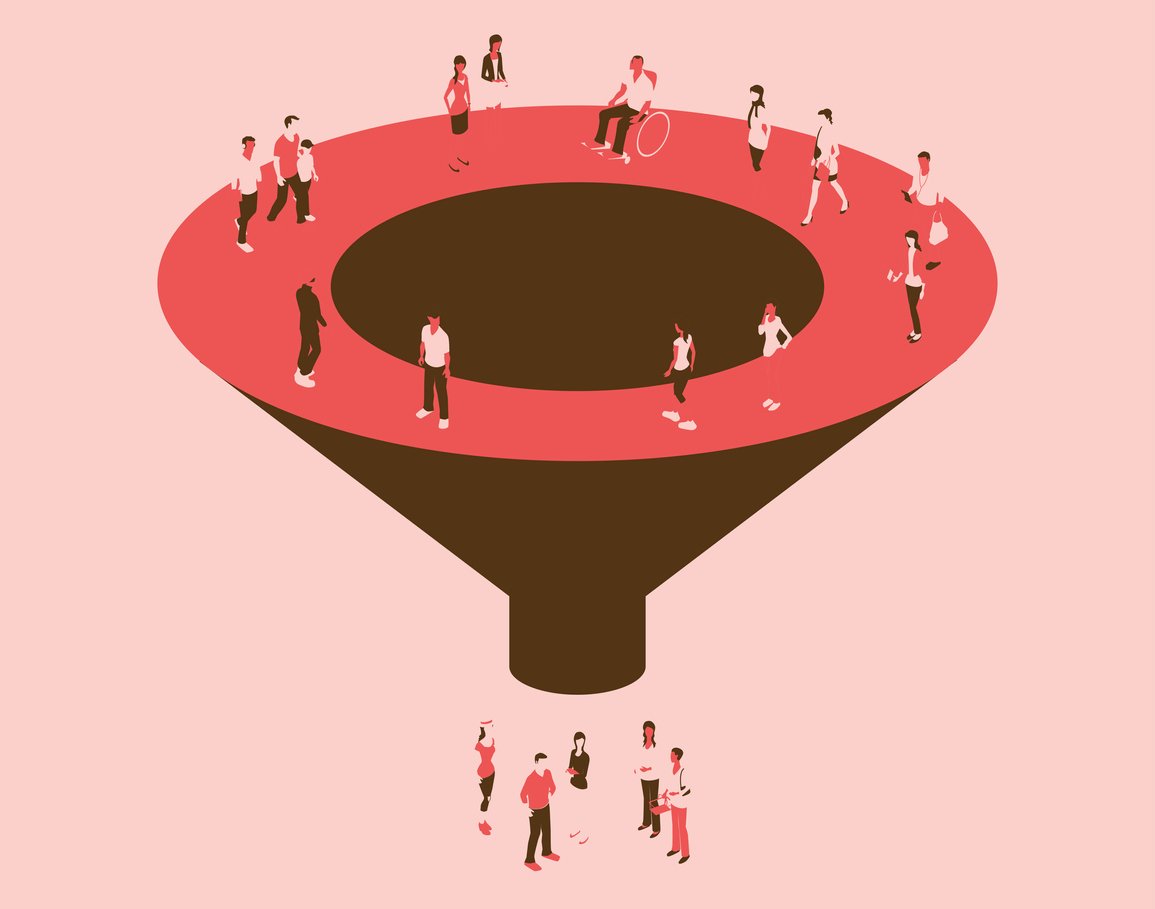
Sales Channel Strategy Implementation - A Step By Step Guide
 Updated on
Updated on
 By Carlos Correa
By Carlos Correa
Carlos Correa
Carlos has been involved in the sales space for well over ten years. He began in the insurance space as an individual sales agent, managing teams as s...
learn more
Carlos Correa
Carlos has been involved in the sales space for well over ten years. He began in the insurance space as an individual sales agent, managing teams as s...
Table of Contents
Table of Contents
Frustrated thinking about ways to increase your revenue?
You've already pushed your sales team's efficiency and maximized your work hours, and while you are hitting your sales goals, you can't seem to go higher.
Now, expanding your sales team looks like an attractive choice.
But recruiting new hires comes with several underlying costs, including training. Getting your new sales reps where they can deliver remarkable results can cost you six to nine months' worth of an employee's salary.
A sales channel strategy enables you to distribute your products via partners that help you market and sell your goods to your customers.
This article will help you clear up the following:
- Types of sales channels
- Channel sales vs. direct Sales
- How to build a multi-channel sales strategy with sms at the core
- Text sales as a key component of cross-channel sales strategy
Let's dive in.
7 Types of Sales Channels

Partnering with a sales channel can make or break your sales channel strategy. You can use one or multiple sales channels, but understanding their benefits to the partnership and how your sales goals align will help you decide the best channels to partner with. Sales channels significantly differ in how they sell products to the consumer.
Before you choose a sales channel, you should consider:
- Your sales goals and how both parties can benefit from the partnership.
- The role you want your channel partner to play in your sales channel strategy
- The best type of distribution that can enhance your sales
Let's look at the A-Z of sales channels, with examples to help you understand what they look like for your business.
|
Sales Channel Type |
How it works |
|
Affiliate partner |
Sell your products for a commission |
|
Agents |
Mediators between your business and your target audience |
|
Consultants |
Connect retailers, distributors, and vendors to ensure your product is delivered to your target consumers |
|
Dealers |
Specialize in selling one kind of product to the end-user rather |
|
Distributors |
Act as intermediaries between producing the product and getting the target audience |
|
Independent retailers |
Generally buy from distributors and sell retail |
|
Resellers |
Serve as the intermediaries between the production company and final consumers |
1. Affiliate partners
These channel partners help you sell your products for a commission based on how much they reach. You can agree on the commission's size either per product or based on bulk sales. A good example of affiliate partners includes influencers that market your product to their audience and receive a percentage off each sale.
2. Agents
Typically, agents are mediators between your business and your target audience. They can help you source for clients and negotiate a deal between both parties in exchange for an agent fee. You can usually see agents in the real estate market that connect clients to property owners.
3. Consultants
Regarding building and maximizing sales channels' efficiency, consultants are the most sought-after partners. Their primary job is to connect retailers, distributors and vendors to ensure your product is delivered to your target consumers without hassle. Top examples include Deloitte, PwC, and KPMG.
4. Dealers
Dealers primarily specialize in selling one kind of product to the end-user rather than selling a wide range of products. Car dealers are the most common example in this category.
5. Distributors
These are the significant intermediaries in connecting products to consumers. While the manufacturing company focuses on creating the product, distributors enable you to focus on production while they ensure that the product reaches the consumer. Distributors act as intermediaries between producing the product and getting the target audience.
6. Independent retailers
From not being tied to the production company to running their retail company to selling a wide variety of products in their niche, independent retailers thrive without the support of a parent company. And customers love them. 65% of consumers prefer to shop in stores.
7. Resellers
Like distributors, resellers serve as the intermediaries between the production company and final consumers. But, resellers buy the product from the parent company and sell it at a different price to the end consumer to gain profit. Typically, the consumer contacts the reseller for the product, and the reseller gets the product from the primary producer.
Channel Sales vs. Direct Sales
When developing a sales channel strategy, one of the most important decisions is whether to sell directly to customers or work through partners, resellers, and distributors. Both models have their benefits, and choosing the right approach often depends on your business size, goals, and market reach.
To help you understand the differences, here's a detailed comparison of direct sales versus a channel sales strategy:
|
Aspect |
Channel Sales |
Direct Sales |
|
Customer Relationship |
Partners and resellers manage customer relationships on your behalf. |
You build and manage relationships with customers directly. |
|
Control Over Sales Process |
Less control, since partners follow their own processes within your channel sales strategy. |
High control because your team handles messaging, pricing, and delivery. |
|
Scalability |
Easier to scale through partner networks, making a multi channel sales strategy more flexible. |
Scaling requires hiring and training more internal sales reps. |
|
Cost Structure |
Lower upfront costs, but margins are shared with partners in the channel sales strategy process. |
Higher upfront costs due to in-house sales team salaries, training, and tools. |
|
Market Reach |
Broader reach, as partners can expand your presence into new geographies through a cross channel sales strategy. |
Typically limited to regions where your internal team operates. |
A well-defined sales channel strategy doesn't always mean choosing one over the other. Many businesses adopt a hybrid or multi channel sales strategy that blends direct and indirect approaches.
For example, you might sell directly to enterprise accounts while relying on channel partners to reach smaller businesses or international markets. This flexibility allows you to tailor your channel sales strategy process to different customer segments and maximize growth.
How to Build a Multi-Channel Sales Strategy with SMS at the Core

If you're serious about creating a sales channel strategy that actually drives revenue, you can't just throw a few emails and calls at your prospects and hope something sticks. Buyers today expect conversations on their terms, and on their preferred channels.
That's where SMS becomes a game-changer. With open rates hovering around 98% (compared to just 20–30% for email), text messaging deserves a front-row seat in your multi-channel sales strategy. Here's a step-by-step look at how to make it work.
Now. Let's look at how you can build a multi-channel sales strategy with SMS at the core.
Step 1: Identify Buyer Preferences by Channel
A smart channel sales strategy starts with understanding where your buyers actually want to hear from you. Some prospects respond better to email, others prefer a quick text, while some will still take a call (yes, those unicorns exist).
You can uncover these preferences by:
- Surveys and feedback forms: Ask customers directly how they prefer to communicate.
- CRM behavior tracking: Spot patterns. Do they click on emails but never reply, or do they respond instantly to SMS follow-ups?
- Context Mapping: Decide where SMS fits best. Whether that's first touch, follow-up reminder, or that all-important abandoned cart nudge.
When you line up buyer behavior with channel choice, your cross-channel sales strategy starts to feel less like a guessing game and more like a tailored conversation.
Step 2: Integrate Text Messaging into Your Sales Funnel
Texting isn't meant to replace email or phone. Instead, it's the glue that holds your sales funnel together. Think of it as the follow-up that cuts through the clutter.
For example:
- Cold email introduction → SMS follow-up ("Just checking if you saw my note…") → Phone call for deeper discussion.
Platforms like Ringy make this seamless by letting you automate SMS within your CRM stages, so you're not scrambling to send manual texts at scale. This is the kind of integration that turns a basic sales channel strategy into a streamlined channel sales strategy process.
Step 3: Define Your Channel Sales Strategy Process
You can't just wing a cross-channel approach. Every stage of the funnel needs its matching communication channel, otherwise you'll confuse prospects, or worse, annoy them.
A solid process might look like this:
- Lead source: Capture via ads, landing pages, or referrals.
- Qualification: Initial outreach using email or SMS, depending on buyer behavior.
- Nurture: Email for long-form value, SMS for quick reminders and check-ins.
- Close: Phone call or in-person (if high-value), backed up by SMS confirmations.
- Post-Sale Engagement: SMS surveys, loyalty offers, and reminders.
This mapping ensures your multi-channel sales strategy doesn't just exist on paper—it becomes actionable and measurable.
Step 4: Automate Where Possible, Personalize Where Necessary
The real magic happens when you strike the balance between automation and personalization. Automation keeps you efficient; personalization keeps you human.
- Automation: SMS drip campaigns with dynamic fields (like first name, product of interest, or demo date) save your reps hours.
- Personalization: Segmenting by behavior, product interest, or lifecycle stage ensures your texts don't read like cookie-cutter blasts.
In other words, your prospects feel seen, but your team doesn't burn out.
Step 5: Track and Optimize with Cross-Channel Sales Metrics
A channel sales strategy isn't "set and forget." You've got to measure, tweak, and improve constantly. The best way? Monitor how each channel performs and how they work together.
Key metrics to track:
- Response rate by channel: Do SMS follow-ups outperform email opens? (Spoiler: usually, yes.)
- Conversion by channel: Which channel nudges leads toward booking a demo or signing a contract?
- Attribution modeling: Understand how email, SMS, and phone calls combine to close deals instead of guessing which one "won."
The beauty of a cross-channel sales strategy is that you're no longer reliant on a single channel's success. Instead, you're orchestrating a multi-channel sales strategy that keeps prospects engaged from first touch to post-sale loyalty.
Text Sales as a Key Component of Cross-Channel Sales Strategy
If your sales channel strategy doesn't include text messaging, you're leaving money, and leads, on the table.
Let's break down where SMS fits best.
Use Text Messaging To:
Text sales aren't about blasting generic promos. They're about timely, relevant touchpoints that move leads closer to conversion. Here's how to use SMS strategically within your channel sales strategy process:
- Re-Engage Leads After No Email Reply: Emails get ignored, lost, or buried under a flood of promotions. A quick, polite SMS ("Hi Alex, just wanted to check if you saw my note about [product/service]") often revives the conversation. Research shows SMS response rates can be as high as 45%, compared to just 5% for email follow-ups, making it a powerful re-engagement tactic in your multi-channel sales strategy.
- Confirm Appointments and Reduce No-Shows: A simple text reminder: "Looking forward to our call tomorrow at 2 PM," can slash no-shows by up to 40%. This is where a channel sales strategy that leverages SMS shines: it keeps your pipeline running smoothly while ensuring reps don't waste time on ghost meetings.
- Follow Up Instantly After Form Submissions: When someone fills out a form, they're at peak interest. Waiting even an hour can cause that lead to go cold. SMS lets you strike while the iron is hot: "Thanks for requesting a demo. When's a good time to connect?" Automating this step ensures your cross-channel sales strategy doesn't miss opportunities.
How Cross-Channel Cadence Boosts Conversion Rates
Here's the thing: SMS alone won't close deals. But when woven into a thoughtful cadence alongside email, phone, and even social touches, it multiplies your impact. This is where a true cross-channel sales strategy outperforms single-channel efforts.
Imagine this flow:
- Day 1: Cold email introduction.
- Day 2: SMS follow-up.
- Day 3: LinkedIn connection request.
- Day 5: Phone call.
Each channel reinforces the other. Instead of feeling spammy, your outreach feels persistent yet considerate, like you're meeting buyers where they are. Studies show that businesses using a multi-channel sales strategy see 3x higher engagement rates than those relying on just one channel.
The takeaway? SMS isn't a "nice to have" anymore. It's the engine that powers a cross-channel cadence, ensuring your channel sales strategy process stays consistent, engaging, and results-driven.
Wrap Up

A sales channel strategy does more than improve your sales channel program's efficiency.
Using a sales channel strategy enables you to maximize your collaboration with channel partners, get reliable customer feedback, and use actionable insights to grow your revenue.
And Ringy makes it more convenient for you to reap the benefits.
Ringy can help you manage and enhance your sales channel strategy with:
- Contact management to stay on top of partner communications
- More data-driven insights into what works in your partnership and sales pipeline
- Customization to build a pipeline that matches your partnership and sales process
- Central database that enables you to store, track and monitor performance
Request a demo to learn more about how we can help work towards achieving your sales goals.

Skyrocket your sales with the CRM that does it all.
Calling? Check. SMS? Check. Automation and AI? Check. Effortlessly keep in touch with your customers and boost your revenue without limits.

Take your sales to new heights with Ringy.
Sales in a slump? Ringy gives you the tools and flexibility you need to capture leads, engage with them, and turn them into customers.
Subscribe to Our Blog
Enter your email to get the latest updates sent straight to your inbox!
Categories
Related Articles



































































































